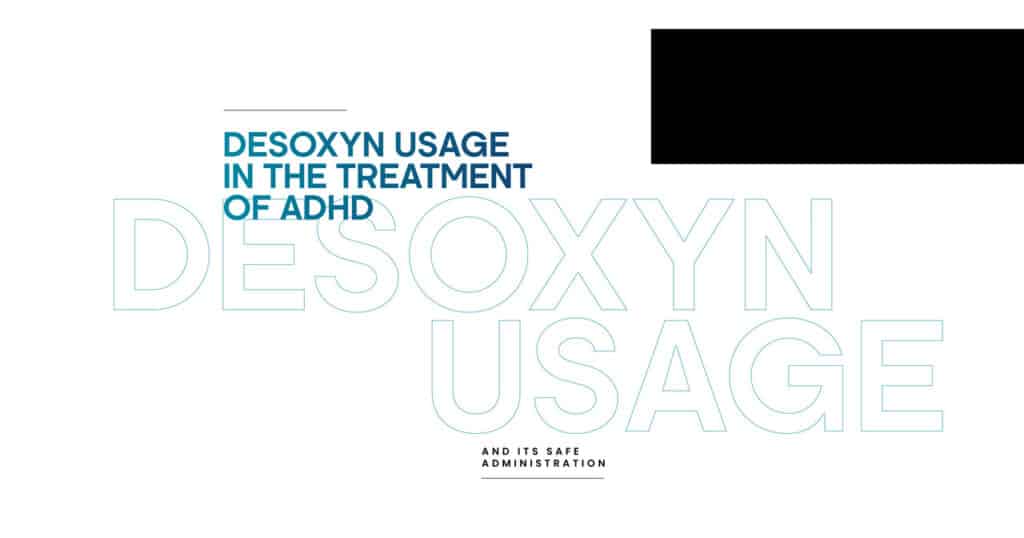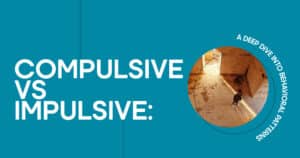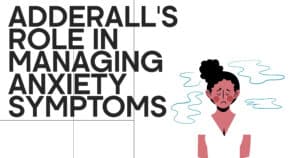Attention Deficit Hyperactivity Disorder (ADHD) affects thousands of individuals worldwide, both children and adults. While various treatment options are available, stimulant medications like Desoxyn (methamphetamine hydrochloride) are sometimes prescribed, especially when other treatments prove ineffective. This blog post explores the usage of Desoxyn in treating ADHD and highlights essential guidelines for its safe administration.
What is Desoxyn?
Desoxyn, the brand name for methamphetamine hydrochloride, is a central nervous system stimulant. It’s classified as a Schedule II controlled substance due to its high abuse and dependence potential. Despite its association with illegal drug use, Desoxyn is an FDA-approved medication for ADHD and obesity, mainly when other treatments are not successful.
How Desoxyn Works for ADHD
Desoxyn increases certain neurotransmitters in the brain, specifically dopamine and norepinephrine. These chemicals play crucial roles in attention and behavior regulation. By enhancing their levels, Desoxyn helps improve focus, attention, and impulse control in people with ADHD.
Key Points on Desoxyn Usage for ADHD
- Last Resort Medication: Desoxyn is generally considered a last resort due to its potential for misuse and dependency. It is prescribed when other stimulant and non-stimulant medications fail to produce the desired effect.
- Individualized Treatment: The decision to use Desoxyn is based on a thorough assessment of the patient’s medical history and specific needs. It is not a first-line treatment.
- Controlled Use: Strict adherence to the prescribed dosage and schedule is essential. Desoxyn should always be taken under the supervision of a qualified healthcare provider.
Safe Administration of Desoxyn
Ensuring the safe administration of Desoxyn is critical to minimizing risks associated with its use. Here are some guidelines and best practices for its safe administration:
Medical Assessment
Before prescribing Desoxyn, healthcare providers conduct a comprehensive medical assessment. This includes evaluating the patient’s medical history, any history of substance abuse, and the presence of co-existing mental health conditions.
Monitoring
Patients on Desoxyn require regular follow-up appointments to monitor the medication’s effectiveness and side effects. Based on these evaluations, adjustments to the dosage may be necessary.
Patient Education
It’s essential to teach patients and their families about Desoxyn, its possible side effects, and the need to follow the prescribed dosage. Patients should feel comfortable talking with their doctors to address any concerns or side effects quickly.
Dosing Guidelines
The initial dose of Desoxyn typically starts at 5 mg once or twice a day. The dosage can be increased in 5 mg increments weekly until the optimal response is achieved, usually between 20 and 25 mg daily. It’s crucial to avoid late-evening doses to prevent insomnia .
Potential Side Effects and Risks
While Desoxyn can be effective for ADHD, it carries potential side effects and risks, including:
- Common Side Effects: Restlessness, dry mouth, headache, and difficulty sleeping.
- Serious Side Effects: Increased blood pressure, rapid heart rate, and risk of dependency and abuse.
- Warnings: Misuse can lead to severe cardiovascular events and cognitive health issues such as anxiety or paranoia.
FAQs
Is Desoxyn Safe for Long-Term Use?
Desoxyn is generally not intended for long-term use due to its high potential for abuse and dependency. Regular assessments are necessary to determine the ongoing need for the medication and to monitor for any signs of misuse.
How Does Desoxyn Compare to Other ADHD Medications?
Desoxyn is less commonly prescribed compared to other ADHD medications like Adderall or Ritalin. Its use is typically reserved for cases where other drugs are ineffective. Desoxyn’s higher risk profile necessitates careful consideration and monitoring .
Can Desoxyn Be Used in Children?
Desoxyn can be prescribed for children over the age of six when necessary. The dosing and administration for children are similar to those for adults, and careful monitoring and regular assessments ensure safety and effectiveness .
Conclusion
Desoxyn, while effective for treating ADHD, is a medication that requires careful consideration, thorough patient education, and rigorous monitoring due to its potential for abuse and severe side effects. Healthcare professionals must weigh the benefits against the risks and ensure patients adhere strictly to the prescribed treatment plan.
Consult with a healthcare provider for more information about ADHD treatment options and the safe administration of Desoxyn. Proper management and open communication can help get the most benefits from this strong medication while reducing the risks.







